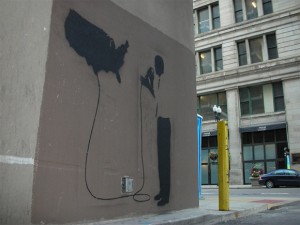There’s a backdoor reference to this in next week’s Hustle, so I thought it might bear out some explication.
Sometimes written as ‘TBL’ or ‘3BL’, triple bottom line simply stands for
People
Planet
Profit
In the language of sustainability, triple bottom line describes the environmental and social impact of an organization’s activities. The profit, therefore, is seen not in the usual context of being maximized no matter what – the lone and ultimate measure – but in harmony with the other two. Exactly. Sounds antithetical to what we’ve been slipped. The phrase was coined by John Elkington, co-founder of the business consultancy SustainAbility, in his 1998 book Cannibals with Forks: the Triple Bottom Line of 21st Century Business.
Triple Bottom Line is the acknolwedgement of a very natural limitation to the way business has been “done” for the last couple of hundred years. Absent people and planet there’s really little profit to be realized. How we’ve gotten so far removed from this speaks to many factors but there is little doubt about the institutional contempt in which corporations have held simple traits like honesty, which are fundamental to TBL. It speaks to the way the words are supposedly elevated, eptomized in the way that advertisers tout words like ‘sincerity’, ‘honesty’ or, my favorite, ‘trust’ in their ads like these are some kinds of freakish overlay concepts that come with an embedded voice over. It’s understood that if the business is solid and cutthroat as it should be, these will be nowhere else found.
And yet TBL is all about an honest profit, taking into account the effect of your endeavor on the human and natural capital required by it. In this context, the ‘single bottom line’ is nonsensical, like applying a balance sheet to a landscape. To have a net anything, discounting all transactional and opportunity costs, itself reeks of the finality that is the flipside of sustainable activity.
TBL is not a greenwash, but an accounting practice underpinning how a green business operates and, by extension, how society becomes sustainable.
So, with apologies to Howe Gelb, several cheers for Madame Triple Bottom Line.

